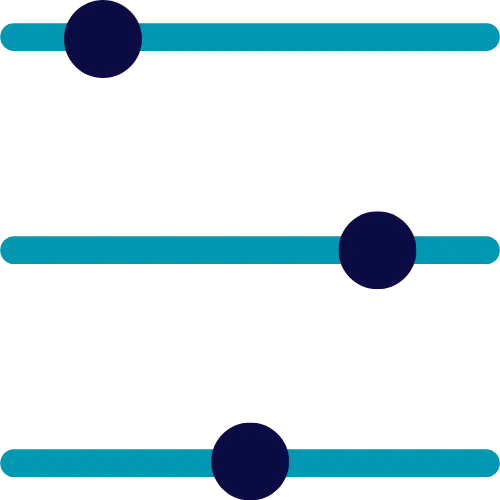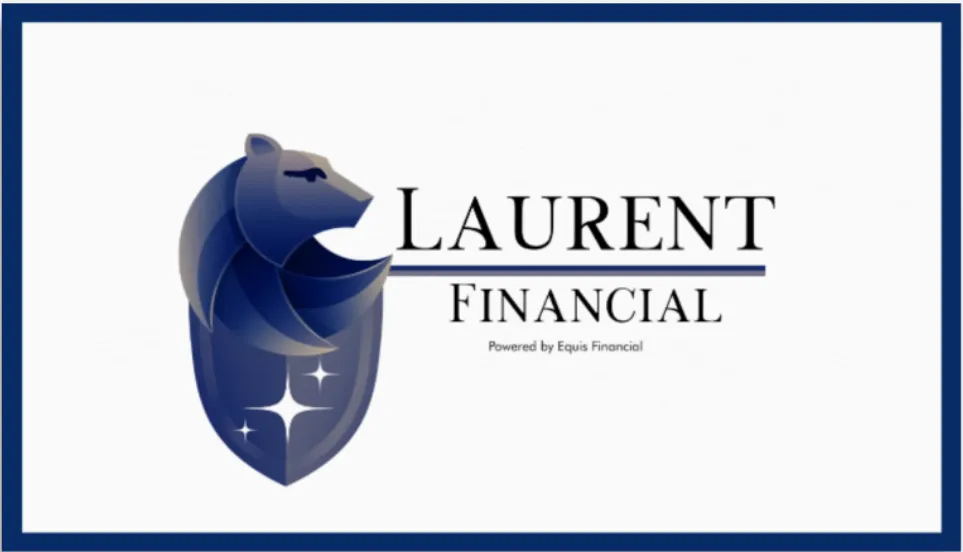Universal Life Insurance
Life insurance that's flexible to your needs.
Universal life lets you protect the
people you love with great coverage
that's flexible to fit your life.
Universal Life Insurance
Protect today and every day after with insurance.
Insurance is the best way to protect
the life you've worked hard to build
and give you (and your family) more
financial flexibility when it's needed
most.
What is universal life insurance?
Universal life insurance gives you lifelong protection and cash value you can use for anything,
anytime, plus the flexibility to adjust your policy along the way as your life and needs change.
It lets you choose the amount of your death benefit and how much you pay in premiums,
as well as when you pay them.
Let's talk about why life insurance is so important.

Flexible death benefit
You can start off with a specific amount to meet your current needs, but if things shift down the road, you have the option to increase or even change the type of death benefit (within limits) to fit your situation.

Flexible premiums
Life insurance is simple. You make reoccurring payments (your premium), and your beneficiaries gets payed a set amount of money, tax-free, to whoever you choose, including your favorite charities if you want, when you pass away.

Cash value
Use it for anything, anytime, usually without owing taxes. You can help pay for an emergency, home repair, college tuition, even invest in your business, whatever you need. However, your policy could lapse if the net accumulated value of the policy is less than the monthly fees.
3 types of Universal Life Insurance we offer:
Indexed Universal Life Insurance
Indexed Universal life can be guaranteed or non guaranteed with an option to tie your return to a major stock market index like the S&P 500 (or some other domestic/international stock market indexes). Interest crediting goes up and down in lockstep with the index. Non guaranteed equity indexed universal life policies have similar drawbacks to non-guaranteed universal life. New guaranteed indexed universal life is a better option as it provides an opportunity to earn better interest rate with few guarantees. In all types of universal life – the no lapse guaranteed universal life policy is the best option if you are looking for permanent life insurance benefit with cash value growth.
Traditional / Non-Guaranteed
“Unbundled” product, which means that mortality expenses, interest rate, and other expenses are factored in to calculate premium rates and cash values. This offers flexibility in making your premium payments, it can work against you as most life insurance agents sell this policy at the lowest allowable premium only, rather than the insurance companies’ guideline premium.
Because traditional universal life is a non-guaranteed product, it can end up costing you a fortune (in the form of not having life insurance when you need it most, as well as income tax consequences of cancelling your policy, such as phantom income tax) if your policy is dropped (lapsed or cancelled) because of not having sufficient cash value or lack of further higher premiums.
No Lapse Guaranteed
This is a traditional or non-guaranteed universal life policy except your premium is guaranteed never to increase. As long as that guaranteed premium is paid on time, your death benefit will always be always in force. Guaranteed universal life is a fairly recent invention, and it is popular, because it functions as your life-long term policy or term life without expiration and with fixed premiums. This is a great universal life policy for anybody who is at least 55 years old and looking for life insurance for the rest of life with minimum fixed premiums. This policy can be used for estate tax liquidity, final expenses, a legacy for the next generation, or any other permanent life insurance need.
Get matched with a financial advisor in four easy steps.
Questions about universal life insurance?
We've got answers.
How does universal life insurance work?
Universal life gives you protection for the people you love, as well as the flexibility to choose the amount of your death benefit, how much you pay in premiums, and when you pay them (within certain limits). Cash value earns interest every day, and expenses are taken out monthly. As long as there is enough cash value to pay your policy's monthly expenses, your coverage will continue. It will also build cash value that can be used for anything, anytime.
What are the differences between universal life insurance & whole life insurance?
How they're similar:
Both are types of permanent life insurance.
Both build cash value.
How they're different:
Whole life comes with a guaranteed death benefit, while universal life comes with a flexible death benefit.
Whole life comes with set premiums, while universal life comes with flexible premiums.
How do flexible premiums work with a universal life insurance policy?
Universal life gives you flexibility to choose how much you pay in premiums and when you pay them (within certain limits) as your circumstances change. While you may eventually have to pay higher premiums to keep your coverage, that flexibility can make it easier to keep your insurance policy in force if your earnings vary like if you're self-employed, own a business, or earn money through royalties. Ask an advisor if universal life is right for you.
How does the cash value of a universal life insurance policy work?
You can take money out of your policy as a withdrawal up to the amount of the premium you've paid in so far without paying taxes. You can also take a loan against your cash value or use the policy's cash value as collateral for a loan from a bank. If you choose to surrender your entire policy, you can take all of its cash value, but you'll also be surrendering your coverage.
What can I do with the cash value of my universal life insurance policy?
Your policy's cash value is an asset that you can use for anything, anytime. It can be used for unexpected emergencies, like a home repair or a business investment. You can take money out of your policy as a withdrawal up to the amount of the premium you've paid in so far without paying taxes. You can also take a loan against your cash value or use the policy's cash value as collateral for a loan from a bank. If you choose to surrender your entire policy, you can take all of its cash value, but you'll also be surrendering your coverage.
How do universal life's flexible premiums work?
Universal life gives you flexibility to choose how much you pay in premiums and when you pay them (within certain limits) as your circumstances change. While you may eventually have to pay higher premiums to keep your coverage, that flexibility can make it easier to keep your insurance policy in force if your earnings vary like if you're self-employed, own a business, or earn money through royalties. Ask an advisor if universal life is right for you.
What happens to a universal life policy's cash value at the policyholder's death?
At the time of the insured's death, the beneficiary will receive the death benefit. The value of the death benefit will be greater than the policy's cash value. Still have questions? Connect with an advisor.
Can I withdraw money from universal life insurance?
Yes, this is pool of money is called cash value. The cash value of a policy is an asset that you can use for anything, anytime. It can be used for unexpected emergencies, like a home repair or a business investment. You can take money out of your policy as a withdrawal up to the amount of the premium you've paid in so far without paying taxes. One of our advisors can give you more details.
Can I borrow money from a universal life insurance policy?
Yes. You can take a policy loan. Interest is charged on the loan, but there is no financial underwriting, so you can borrow at any time against your policy, and the repayment terms are flexible. You can repay on your own terms or allow the loan interest to be added to the loan. It's important to know that your death benefit will be reduced by the amount of the loan until it's repaid, and the loan must be carefully managed to avoid any tax consequences.
Can a universal life insurance policy collect dividends?
No, it cannot. However, whole life insurance does. While not guaranteed, you can take the dividend as cash, use it to pay premiums, or buy more coverage. Ask an advisor which insurance is right for your needs and goals.

About Us
Medicare
Insurance
Disability
Long Term Care
Income Annuities
Blog
Call Today: +1 844-515-0754
Email Us: [email protected]
Copyright © 2024
is an Insurance Company
All Rights Reserved.